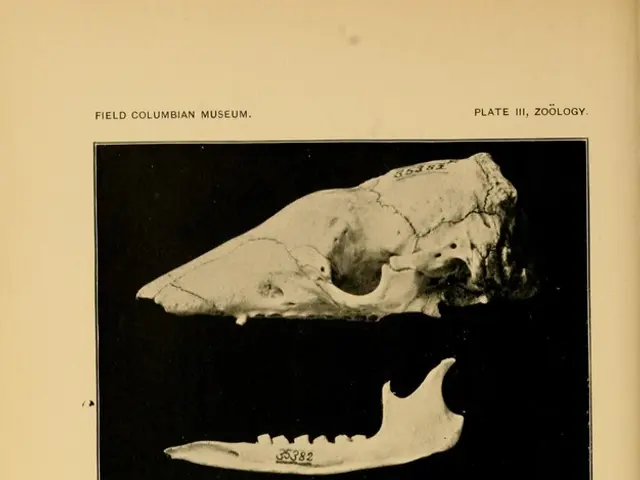Maintenance of mental acuity: Adherence to Mediterranean diet and active lifestyle could offer protection
Get Your Brain Boost with MedWalk: The Power of Diet and Walking Combined
Are you looking for ways to safeguard your cognitive health and reduce the risk of dementia? You're in luck! A groundbreaking study dubbed "MedWalk" investigates the synergistic impact of a Mediterranean diet and regular walking on cognitive decline and various dementia types, including Alzheimer's.
Led by researchers hailing from Australia, New Zealand, and the United Kingdom, the Study aims to assess the combined benefits of these two habits, rotten independently known for their positive effects on brain health. Unfortunately, the COVID-19 pandemic interrupted their progress, but the data on their procedures and ongoing analysis is available in the Journal of Alzheimer's Disease.
While the study's conclusion is yet to be reached, it's believed that the MedWalk intervention – a combination of a Mediterranean diet tweaks and a supervised walking regimen enriched with psychosocial behavior change techniques – could slow down cognitive decline, boost quality of life, and reduce healthcare costs.
The study involves participants aged between 60 and 90, recruited from independent living retirement communities and the wider community due to the pandemic's impact. Throughout the study, participants' biomarkers related to cognitive decline, such as glucose regulation, inflammation, nutrients, and oxidative stress, are under the microscope.
The study's primary focus is on a 12-month change in participants' visual memory and learning capacity.
While the scientists gather data, let's delve into the possible reasoning behind the importance of the Mediterranean diet and walking in maintaining cognitive health.
Conner Middelmann, a certified nutritionist specializing in the Mediterranean diet, shared her insights on the research. Previous studies have pointed toward a link between the Mediterranean diet and lower dementia rates, both overall and Alzheimer's, the most common form of dementia. However, she emphasized that numerous factors can contribute to dementia risk, such as genetics, lifestyle, and overall health.
"By maintaining a healthy diet like the Mediterranean diet, you're only taking one crucial step in a comprehensive approach to brain health and dementia prevention." Middelmann advised.
So what exactly makes the Mediterranean diet a brain booster? Middelmann shed some light on the subject:
- Antioxidants: Rich in antioxidants that combat oxidative stress and inflammation, thought to be significant contributors to cognitive decline and neurodegenerative diseases.
- Omega-3 fatty Acids: High in omega-3 fatty acids, particularly docosahexaenoic acid (DHA), essential for brain health and linked to improved cognitive function and a lower risk of cognitive decline.
- Gut Health: High in fiber to keep the gut microbiome balanced, promoting overall health.
- Sugar Intake: Low in processed grains and sugars, minimizing the risk of insulin resistance and inflammation.
- Ultra-Processed Foods: Encourages avoiding ultra-processed foods, linked to dementia.
- Social Interaction: Encourages sharing meals with family and friends, a known contributor to brain health.
- Physical Activity: Fosters regular exercise, another aspect of the Mediterranean lifestyle associated with brain health.
Walking, too, plays a significant role in cognitive preservation. The Intense Lifestyle Intervention to Prevent Alzheimer's Disease (ILIAD) study conducted by Australian and American researchers found a relationship between the number of daily steps and a 50% reduction in dementia risk. Meanwhile, a 2017 study published in the British Journal of Sports Medicine established that aerobic exercise, including walking, can strengthen cognitive impairment.
According to R. Ryan Glatt, a brain health coach from the Pacific Neuroscience Institute, walking may:
- Increase brain blood flow: depending on intensity, duration, and frequency.
- Boost brain activity: benefiting cognitive function.
- Alleviate stress: reducing feelings of overall stress while raising feelings of well-being.
- Provide social and natural elements: benefitting brain health through social interaction and exposure to nature.
Stay tuned for the study's final outcome, expected to be announced by the end of 2023. Embrace the MedWalk lifestyle and unlock a brighter future for your cognitive health!
- By incorporating a Mediterranean diet and regular walking into their routine, individuals might decrease their risk of dementia and cognitive decline, as is being explored in the ongoing study dubbed MedWalk.
- The MedWalk intervention, which combines a Mediterranean diet and a supervised walking regimen, is under investigation for its potential to slow cognitive decline, enhance quality of life, and reduce healthcare costs.
- Maintaining a healthy diet like the Mediterranean diet is just one vital step in a well-rounded approach to brain health and dementia prevention, according to certified nutritionist Conner Middelmann.
- The Mediterranean diet, known for its high antioxidants, omega-3 fatty acids, fiber, and low processed grains and sugars, is believed to be beneficial for cognitive health due to its potential to combat oxidative stress, foster balanced gut microbiomes, and maintain brain function.
- Regular walking also seems to have a positive impact on cognitive preservation, as studies like ILIAD and publications in the British Journal of Sports Medicine suggest a link between increased daily steps and a reduced dementia risk, and between aerobic exercise and cognitive impairment prevention.
- This exciting MedWalk lifestyle, which prioritizes a Mediterranean diet, regular walking, and social interaction, may contribute to maintaining optimal brain health and ensuring a future with a reduced risk of cognitive decline and dementia.







